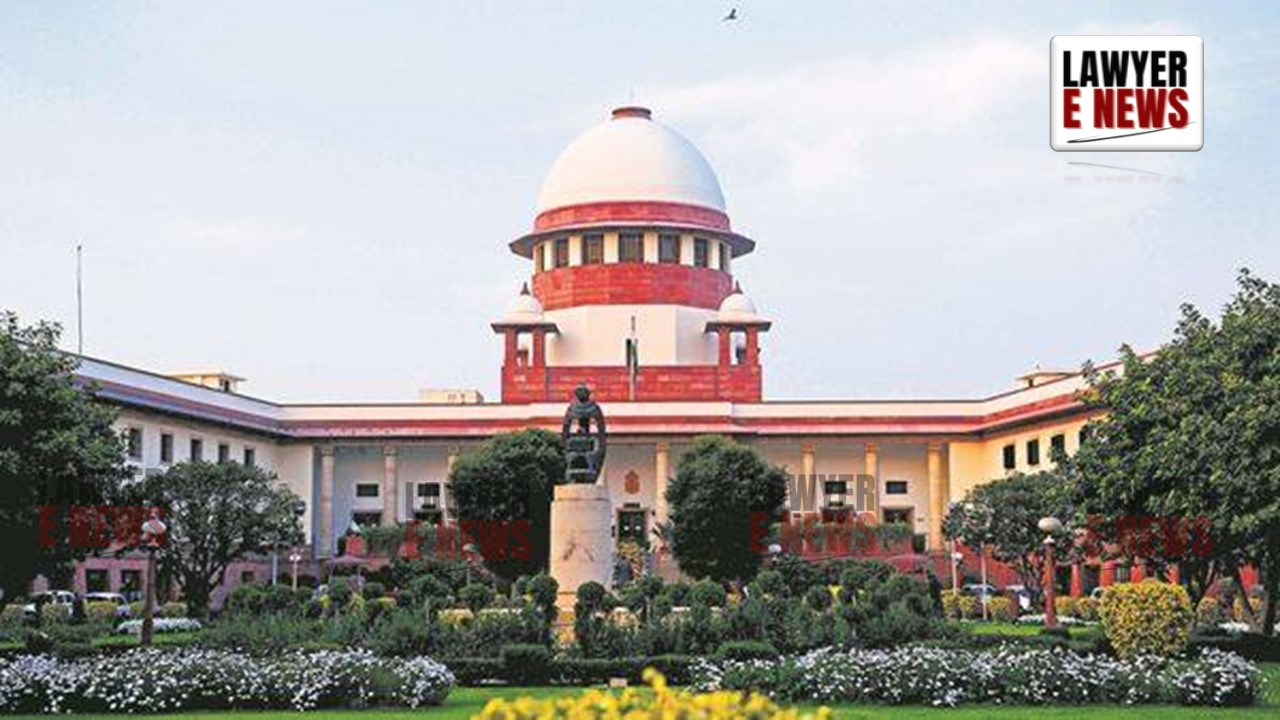-
by Admin
15 February 2026 5:35 AM



Supreme Court of India, in the case of Shoor Singh & Anr. v. State of Uttarakhand, set aside the conviction of the appellants under Sections 304-B and 498-A of the Indian Penal Code (IPC). The appellants, the father-in-law and mother-in-law of the deceased, were acquitted after the Court found that the prosecution failed to prove dowry harassment beyond reasonable doubt. The decision, delivered by a bench comprising Justice J.B. Pardiwala and Justice Manoj Misra, highlights the importance of proving each essential element of dowry death before invoking the presumption under Section 113-B of the Indian Evidence Act.
The case arose from the death of Neelam, who passed away from burn injuries at her matrimonial home on January 17, 2007, less than a year after the birth of her child. Her parents, PW-1 and PW-2, alleged that she was harassed by her in-laws in connection with demands for a motorcycle and cash. The in-laws were initially convicted by the Trial Court under Sections 304-B (dowry death) and 498-A (cruelty) of the IPC and sentenced to 10 years' imprisonment. This sentence was later reduced to 7 years by the High Court. The appellants appealed to the Supreme Court, arguing that the demand for dowry was not linked to the marriage, and that the evidence presented was insufficient to support a conviction for dowry death.
The central legal issue in this case was whether the death of Neelam qualified as a dowry death under Section 304-B IPC and if the presumption under Section 113-B of the Indian Evidence Act was validly invoked. For the presumption of dowry death to apply, it must be shown that:
The deceased died unnaturally within seven years of marriage. She was subjected to cruelty or harassment in connection with dowry soon before her death.
Lack of Evidence on Dowry Demand: The Court noted that there was no direct evidence of dowry demand from the appellants. The alleged demand for a motorcycle and cash was linked to a naming ceremony for the deceased’s child and not to the marriage itself.
Contradictions in Witness Testimonies: The testimonies of PW-1 and PW-2, the parents of the deceased, were inconsistent. They admitted that they did not take the alleged dowry demand seriously, treating it as a joke. This raised serious doubts about the truthfulness of their claims. Furthermore, the Court observed that no independent witnesses were produced to corroborate the prosecution’s version.
No Proof of Cruelty Soon Before Death: The Court emphasized that the prosecution failed to establish any harassment or cruelty linked to dowry soon before the deceased’s death. Without proof of cruelty, the presumption under Section 113-B of the Evidence Act could not be invoked.
The Supreme Court thoroughly analyzed the facts and evidence presented. The prosecution had relied heavily on the testimonies of the deceased’s parents, which were found to be inconsistent. Moreover, no independent witnesses from the community were examined to support the dowry harassment claims.
On Dowry Demand: The Court held, "The alleged demand for a motorcycle and cash was not connected to the marriage, but rather to a naming ceremony, thus failing to meet the criteria for a dowry death under Section 304-B IPC." [Paras 16-17]
On Section 113-B Presumption: “The presumption under Section 113-B of the Evidence Act arises only when all essential ingredients of dowry death are proved beyond reasonable doubt. In the absence of any credible evidence of cruelty or harassment soon before death, the presumption cannot be applied.” [Para 18]
Additionally, the Court found that the deceased had possibly committed suicide due to personal reasons, such as her dissatisfaction with living apart from her husband and the discovery of a photograph with a male stranger. Given the lack of evidence of harassment or cruelty related to dowry, the appellants could not be held liable for dowry death or cruelty under Sections 304-B and 498-A IPC.
The Supreme Court allowed the appeal, acquitting the appellants of all charges under Sections 304-B and 498-A IPC. The Court underscored the necessity of proving all the essential ingredients of dowry death beyond reasonable doubt before applying the presumption under Section 113-B of the Evidence Act.
Date of Decision: September 20, 2024
Shoor Singh & Anr. v. State of Uttarakhand
